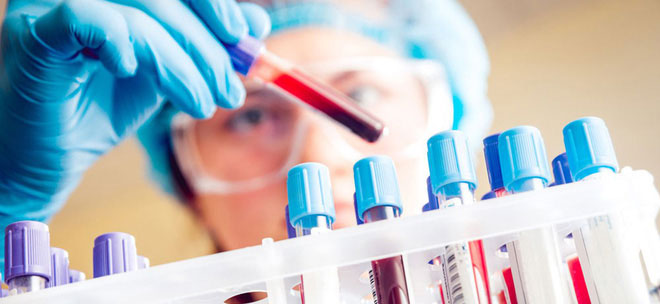Why not take the test, but it takes time to check up?
Have you ever wondered why the doctor always checked before assigning a test, while having the disease just by looking at the result is known right away?
If you just went to the hospital, instead of waiting for the doctor to check, you should go to the test, not how much easier and faster the diagnosis will be?
Of course, doctors have thought about this already, and they still choose to follow such a sequential process for a reason.
The first reason anyone probably guessed, is the cost . Trying all possibilities is very expensive. If you want to run a reaction, you need chemicals and specialized machines, but these are usually not cheap.
By examining the symptoms of the patient, the doctor will remove some of the possibilities that are not possible and only focus on certain results from the laboratory.
However, the most important reason is that the doctor's screening will reduce the impact of two special medical phenomena. They are called false positives and false negatives.
What fake?
False positives are tests that test positive while the testers are completely healthy. Similarly, a false negative is a test that gives a negative result, while the tester has an infection.

These two phenomena are inaccurate testing conditions for the disease.
Shorter, negative or false positive is the condition that the test results are not accurate with the condition.
But why is this? Isn't the mechanical test absolutely correct?
Oh no! We all know that every process in the world has gaps. Even tests with the highest accuracy can only produce 99% correct results.
That means that for every 1,000 people who randomly test, 10 will be misdiagnosed. These people may not be able to take part in timely treatment, or will have to use a variety of over-the-counter medications, treatments . and worry about a disease they don't even have.
And we can be sure that both possibilities lead to incalculable consequences.

Some professions may accept errors, but medicine does not.
Some professions may accept errors, but medicine does not. Every life is precious and therefore clinical screening must always exist. Instead of randomly taking 1000 people to test, the doctor based on the description of the patient's symptoms and living habits to find 100 people at risk.
Taking 100 people to take a blood test, the probability of misdiagnosis drops to only 1 person.
So if the screening and false positive still happen, is this the doctor's fault?
It is also possible, since it is a human being, everyone will sometimes make mistakes. Experts handling tests are not an exception.

Should choose to be examined at prestigious hospitals and can find out in advance about the accuracy of the test.
However, there are many other reasons for the deviation of results such as:
- The patient's description of the disease during a clinical examination is inaccurate, or the patient lies for personal reasons leading to a diagnosis of confusion.
- Some substances in the blood (from contaminated food or gas, for example) cause deflection.
- In some cases, abnormal physiological activity of bacteria (such as random self-agglutination without reagents, etc.) will interfere with the conclusions of the disease.
- Restrictions on machinery, technical equipment, sample preservation areas .
Is there any way to reduce this rate?
We should choose to be examined in reputable hospitals and can find out in advance about the accuracy of the test. Besides, pay attention to follow the instructions before testing, try to provide the most detailed and accurate information for the doctor, absolutely should not lie for any reason.
In addition, when you receive the results, you can check back in several other places to compare the doctor's conclusions and from there to find the most accurate conclusion.
- It takes 30 seconds to check yourself at home, you will know if your body is healthy or not
- 4 ways to check your health at home in just a minute
- Electronic check
- Sweden: Check DNA by smartphone
- It only takes 15 minutes to test the risk of pre-eclampsia
- Health check with microchip 'medicine'
- 3 seconds to check if your body has enough water
- Research shows that after-hours mail check is very harmful to health
- 3 quick and accurate ways to check your health
- Home sperm test kit
- Check Point can patch Microsoft's latest zero-day weakness
- Study technology test new generation lie
 'Fine laughs' - Scary and painful torture in ancient times
'Fine laughs' - Scary and painful torture in ancient times The sequence of numbers 142857 of the Egyptian pyramids is known as the strangest number in the world - Why?
The sequence of numbers 142857 of the Egyptian pyramids is known as the strangest number in the world - Why? History of the iron
History of the iron What is alum?
What is alum?